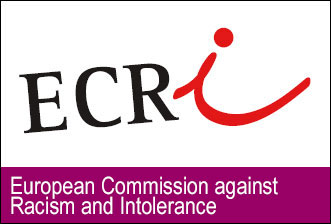Roundtable in France

(from left to right: Olivier KLEIN, Interministerial Delegate for the Fight against Racism, Antisemitism and Anti-LGBT Hatred (DILCRAH), Bertil COTTIER, Chair of ECRI, Claire HÉDON, Defender of Rights, Jean-Marie BURGUBURU, Chair of the National Consultative Commission on Human Rights)
Round Table of the European Commission against Racism and Intolerance (ECRI), the National Consultative Commission on Human Rights (CNCDH) and the Defender of Rights (DDD)
The aim of the event was to provide the participants with the opportunity to discuss the follow-up to the recommendations contained in ECRI’s monitoring report on France, published in 2022.
The roundtable was structured around three sessions:
- Presentation of ECRI's report on France;
- Travellers: how to ensure their effective equality;
- Prevention of any abusive practice by members of law enforcement against people from diverse backgrounds.
Introductory statements were made by Olivier Klein, Interministerial Delegate for the Fight against Racism, Antisemitism and Anti-LGBT Hatred (DILCRAH), Bertil Cottier, President of ECRI, Claire Hédon, Defender of Rights and Jean-Marie Burguburu, President of the CNCDH. ECRI's report on France was presented by Jean-Paul Lehners, ECRI's Rapporteur on France.

from left to right: Mathias DREYFUSS, Deputy Delegate, for the Fight against Racism, Antisemitism and Anti-LGBT Hatred (DILCRAH), Anne-Françoise TISSIER, ECRI Member in respect of France, Jean-Paul LEHNERS, ECRI Rapporteur on France, Johan FRIESTEDT, Executive Secretary of ECRI)
In addition to representatives of the authorities, the round table brought together members of various civil society organisations, as well as members of groups within ECRI's mandate.
This event contributed positively to the national debate on the fight against racism, racial discrimination and intolerance in the country.
In its 2022 report on France, ECRI expressed concern about issues such as the prevalence of hate speech, including in politics, as well as in audiovisual media and social media, which sometimes contributes to creating an environment conducive to acts of violence against Travellers and Roma, people with a non-European immigrant background, LGBTI people or people perceived as Jewish or Muslim.
ECRI has also expressed particular concern about Travellers and Roma, who continue to suffer discrimination in all areas of life. Another priority area of concern was the relationship between law enforcement officials and the population, including people with a migrant background or belonging to minority groups.

(from left to right: Olivier KLEIN, Interministerial Delegate for the Fight against Racism, Antisemitism and Anti-LGBT Hatred (DILCRAH), Bertil COTTIER, Chair of ECRI, Claire HÉDON, Defender of Rights, Jean-Marie BURGUBURU, Chair of the National Consultative Commission on Human Rights)
Documents:
In its 2022 report on France, ECRI expressed concern about several issues pertaining to racism and intolerance in the country and made a series of recommendations such as:
- providing all people engaged with educational institutions with comprehensive training on human rights, fostering tolerance, and embracing diversity. This measures should encompass understanding and addressing LGBTI issues, preventing bullying and effectively responding to instances of prejudice and discrimination;
- taking more effective measures to address racist or LGBTI-phobic speech in politics
- encouraging all political parties to adopt codes of conduct with a view to preventing and sanctioning hate speech;
- examining, in co-operation with grassroots organisations, the specific measures to be taken to ensure that the dismantling of migrant camps is strictly supervised in practice and does not infringe on fundamental rights or lead to a deterioration in the living conditions of those concerned, whether or not they are in a regular situation;
- setting up reception and support services for migrants in a regular situation to ensure that measures to digitise procedures effectively facilitate access to their rights;
- ensuring the full implementation of the national strategy for Roma and Traveller equality, inclusion and participation in society, in cooperation with the communities concerned;
- recognising the caravan as a type of housing for Travellers and reviewing the exemptions prohibiting their being parked outside the areas specifically designated for them and limiting the length of time they can be parked;
- stepping up efforts to ensure that arrangements for assessments and for identifying and taking appropriate support measures are effectively applied nationwide prior to any clearance of illegal settlements, including those of Travellers or Roma, that the resources available are increased accordingly and that no legitimate residence applications are rejected;
- introducing an effective system for recording “stop and account” activities by law enforcement officials;
- ensuring that appropriate action is taken in all cases involving racist or LGBTI-phobic attitude and behaviour by law enforcement officials.





